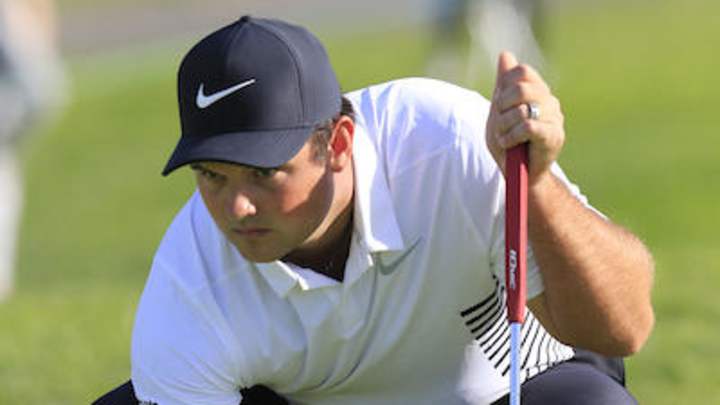Villain in victory: Can Reed win over fans?

AUGUSTA, Ga. – As Jordan Spieth approached the 17th green at Augusta National Golf Club late Sunday afternoon, so did a bunch of spectators who wanted to see whether the young Texan – 9 under par for the day and tied for the lead with Patrick Reed at 14 under – could make a storybook round even better.
The way the fans moved eagerly toward Spieth recalled, at least in a scale-model sense, how another gallery had grown at that location a long time ago in anticipation of what another popular player, Jack Nicklaus, trying to complete an amazing final-round comeback, might do. Unlike Nicklaus on No. 17 in 1986, though, Spieth didn’t sate the fans by making a birdie putt. And instead of duplicating the Golden Bear’s par at the last, Spieth would card a costly bogey.
Moments after Spieth missed his birdie attempt on the 17th, Reed was on another par 4, the nearby 14th, having hit a lovely approach. Looking over from the large crowd around No. 17 to the sparse gallery with Reed, it seemed as if he could have been at the tail end of the field instead of the top.
© GOLFFILE/EOIN CLARKE
Patrick Reed proves that he doesn’t need the gallery behind him to win one of golf’s biggest prizes.
Reed holed what turned out to be the green jacket-securing birdie, given that another fan favorite, Rickie Fowler, soon would make a birdie at the 18th to get to 14 under. When Fowler’s putt dropped, it was another sustained cheer for Reed to hear, like the one for Rory McIlroy when he hit a gorgeous second shot to set up an (ultimately squandered) eagle opportunity on No. 2, or the numerous reactions throughout the afternoon for Spieth as he charged up the leader board.
Seemingly impervious to who was rooting for whom, Reed had practice at this. He won a FedEx Cup playoffs event, The Barclays, in 2016 at Bethpage State Park in a final-round pairing with Fowler, the overwhelming choice of a rowdy gallery that made Masters patrons look drowsy by comparison.
That was an instructive Sunday and foretold how Reed might handle the situation of bidding for his first major victory despite not being the people’s choice. The atmosphere at Augusta National was telling, too, not only in how well Reed played but how that play was greeted, with respect but without the warm fuzzies.
Reed has publicly walled off accusations about his past (transgressions on and off the course during college) and curiosity about his present (being estranged from his parents, who live just a few miles from Augusta National but watched the Masters on TV). Reed deflected a reporter’s query about his family in his champion’s news conference, which is and always will be his choice, just as those watching Reed compete have the prerogative to wonder what makes him tick outside the gallery ropes even as he excels inside them.
Earlier this week, Reed went on what has become the usual post-Masters, conquering-golfer tour of New York City, hitting the sights and the talk shows. In the wake of a convincing major triumph – sleeping on a 54-hole lead and then getting it done despite a rush of challengers – Reed no doubt is feeling as tall as the Empire State Building observation deck on which he posed for pictures.
How will folks feel about Reed when he is back in action, when he is trying to win a second major (and it probably won’t be long until that happens, given his skill and savvy)? The reaction might be as interesting as the result. Athletes who can make their game look simple often are complicated individuals. Unless someone is a pro wrestling heel, a bad guy by script and deed, winning tends to win people over. And a pat on the back can be more valuable than a chip on the shoulder.
Bill Fields has covered golf since the mid-1980s, with much of his career spent at Golf World magazine as a writer and editor. A native North Carolinian, he lives in Fairfield, Conn. Email: williamhfields@gmail.com; Twitter: @BillFields1

Fields has covered golf since the mid-1980s, spending much of his career with Golf World magazine as an editor and writer. In recent years, he has contributed stories to various outlets including espnW.com, PGATour.com, The New York Times, The Met Golfer and Golf World (U.K.). Bill has covered more than 100 men’s major golf championships along with dozens of women’s and senior majors. He also is an experienced photographer, having shot dozens of golf tournaments, and continues to pursue that passion through personal and fine-art projects. Email: williamhfields@gmail.com; Twitter: @BillFields1